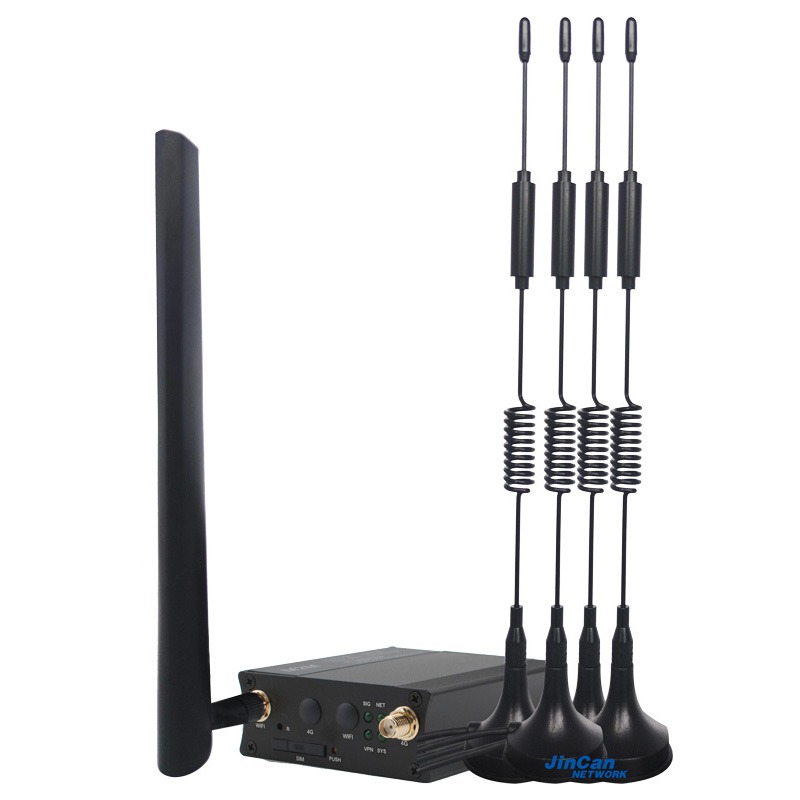What is IoT Gateway?
Introducción
The Internet of Things (IoT) is revolutionizing industries and daily life by connecting devices and enabling seamless communication between them. From smart homes to industrial automation, the applications of IoT are vast and transformative. However, at the heart of every IoT ecosystem lies a critical component: the IoT Gateway. But what exactly is an IoT Gateway? What role does it play in IoT architecture? And how can you choose the right IoT Gateway for your needs? In this article, we’ll explore these questions in detail and highlight the application of jincan network’s ZX4224 in IoT.
What is an IoT Gateway?
An IoT Gateway is a central hub that connects IoT devices to the cloud and facilitates communication between them. Acting as both a translator and a safeguard, the IoT Gateway converts communication protocols to enable interoperability between devices, while also ensuring data security and optimizing network performance.
Core Functions of an IoT Gateway
- Protocol Translation: IoT devices use various communication protocols such as ZigBee, LoRa, Wi-Fi, Bluetooth, and MQTT. The gateway translates these protocols to ensure device compatibility.
- Data Aggregation and Filtering: The gateway processes and filters the vast amounts of data collected from sensors, reducing redundancy and alleviating the computational load on the cloud.
- Security Management: By encrypting data and implementing authentication mechanisms, the gateway ensures secure data transmission.
- Connection Management: The gateway manages device-to-cloud connections, ensuring reliable and stable communication.
- Edge Computing: High-performance gateways can perform edge computing, processing data locally rather than sending everything to the cloud.
Types of IoT Gateways
IoT Gateways can be categorized based on their use cases and functionalities:
- Industrial IoT Gateways: Designed for industrial automation with support for protocols like Modbus and OPC-UA.
- Home IoT Gateways: Used in smart home systems to connect devices like lights, thermostats, and security cameras.
- Vehicle Gateways: Enable data communication in vehicles, particularly for autonomous driving systems.
- Edge Gateways: Equipped with powerful processors for local data processing and analytics.
- Multi-Protocol Gateways: Support multiple communication protocols, ideal for heterogeneous device environments.
Role of IoT Gateways in IoT Ecosystems
- Device Interconnectivity: IoT Gateways bridge the gap between devices from different manufacturers using varying protocols.
- Data Optimization: The gateway processes and compresses data, reducing network congestion and enhancing transmission efficiency.
- Security: IoT Gateways protect devices and networks from cyber threats through encryption and firewalls.
- Edge Computing: Gateways with edge computing capabilities enable real-time data analysis and decision-making.
Application of jincan network’s ZX4224 in IoT
1. Overview of ZX4224

ZX4224 is a high-performance IoT Gateway developed by jincan network. Designed for industrial IoT and smart home applications, this gateway offers exceptional reliability and multi-protocol support.
2. Key Features of ZX4224
- Multi-Protocol Compatibility: Supports Wi-Fi, LoRa, ZigBee, BLE, and RS485, making it compatible with a wide range of devices.
- Edge Computing: Built with a powerful processor for local data analytics and real-time processing.
- Enhanced Security: Utilizes AES 256 encryption and two-factor authentication for secure data transmission.
- Cloud Integration: Seamlessly integrates with popular cloud platforms like AWS, Alibaba Cloud, and Tencent Cloud.
- Modular Design: Easily expandable to meet specific application requirements.
3. Real-World Applications of ZX4224
- Industrial Automation: In a large manufacturing plant, ZX4224 connects multiple sensors and devices, transmitting data to the cloud while performing real-time equipment monitoring via edge computing.
- Smart Agriculture: Farmers use ZX4224 to connect soil and climate sensors with irrigation systems, enabling precise agricultural management.
- Smart Cities: ZX4224 serves as the backbone for smart city infrastructure, connecting smart streetlights, traffic sensors, and surveillance systems.
Choosing the Right IoT Gateway
When selecting an IoT Gateway, consider the following factors:
- Protocol Support: Ensure the gateway supports the communication protocols used by your devices.
- Processing Power: For real-time data analytics, opt for a gateway with edge computing capabilities.
- Security Features: Look for robust encryption and authentication mechanisms.
- Scalability: Choose a gateway with modular design for future expansion.
- Reliability: Ensure the gateway can perform consistently in your specific environment.
Conclusion
IoT Gateways are indispensable to the IoT ecosystem, providing connectivity, security, and data processing capabilities. jincan network’s ZX4224 stands out as a versatile and high-performance IoT Gateway, demonstrating its value in industrial automation, smart agriculture, and smart city applications. As IoT continues to evolve, gateways like ZX4224 will play an increasingly critical role in enabling seamless connectivity and advanced data processing.
If you’re looking for a reliable IoT Gateway, ZX4224 is an excellent choice to consider.


 Whatsapp+8613603031172
Whatsapp+8613603031172